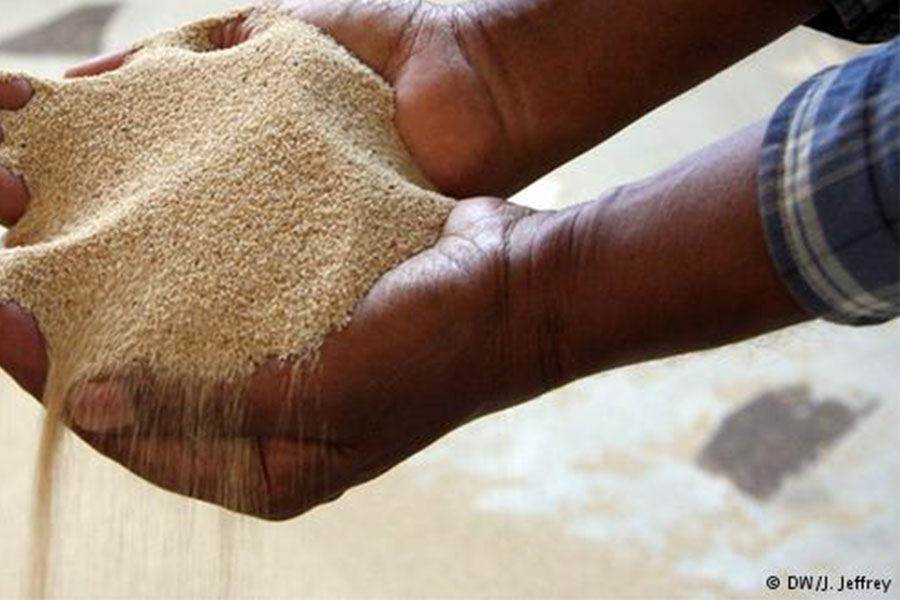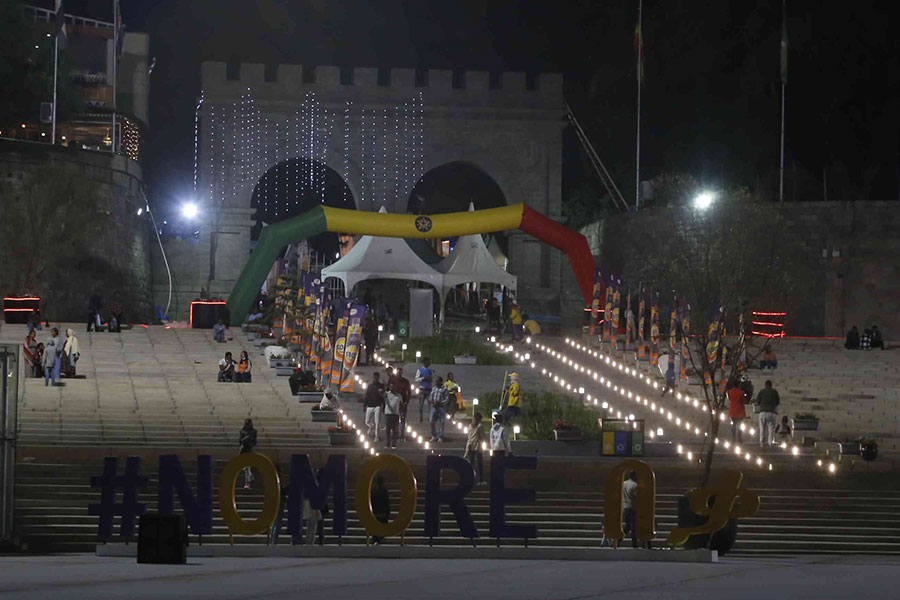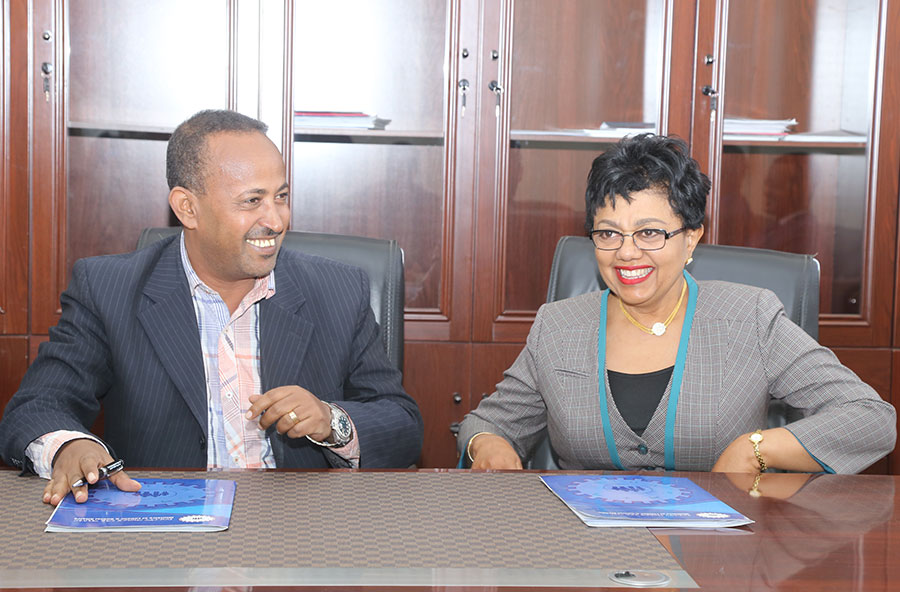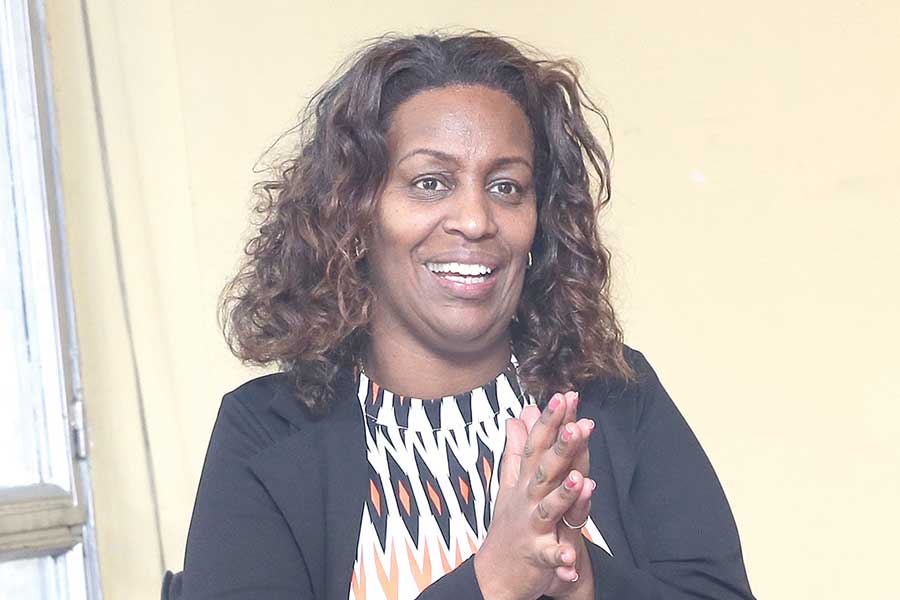
Radar | Jul 13,2019
Mar 20 , 2021
By NEJAT AHMED ( FORTUNE STAFF WRITER )
A federal consumer protection agency has lost a bid to stop a merger of two companies in the beverage industry after a legal battle of 44 months came to an end last month.
Justices at the Supreme Court`s Cassation Bench ruled that there is no legal basis for the Trade Competition & Consumer Protection Authority (TCCPA) to challenge the merger between the East Africa Bottling Co., bottlers of Coca-Cola, and Ambo Mineral Water S.C., a once state-owned company privatised a few years ago. The Authority sued the two companies after they allegedly declared their merger in January 2017, in the presence of their staff and distributors at an event held at the United Nations Economic Commission for Africa (UNECA).
The Authority claimed that the merger was evidenced by the companies' management agreeing that distributors would carry both their products by deploying the same sales system; the transfer of major administrative employees between the companies; and shared advertisements, logos and letters. Prosecutors from the Authority presented these as material evidence to prove a merger they challenged as illegal. They argued a merger could be validated in written form, conduct or through what they term as the meeting of minds.
It was an assertion the defense contested, claiming that there was no merger between the domestic companies. If there was, it was made between their parent companies, incorporated in Mauritius.
Ambo International Holdings Ltd, registered in Mauritius, has acquired 33pc of the government’s shares in Ambo Mineral Water for 19.7 million dollars, and SABCO and SABMiller Plc have shares in East Africa Bottling. First established in the 1930s as a private company, Ambo was nationalised during the Dergue regime. In 2008, it was partially privatised with stakes being sold to South African brewery SABMiller and Tewodros Ashenafi, a businessman with a background in oil exploration in Ethiopia. At the time, SABMiller owned 51pc of the company, while Tewodros owned 16pc.
The merger between the companies paved the way for Ambo International Holdings to take over 84pc of the company's shares, whose plant is located in Sekele locality, 130Km west of Addis Abeba in Oromia Regional State.
Five years ago, Ambo was valued at an estimated 60 million dollars. With around 460 employees, the company reached an hourly production capacity of 26,000 glass and 10,500 plastic bottles.
Having its jurisdiction over trade disputes, the Authority ruled in August 2017 that the companies were liable for merging without the Authority's acknowledgment and imposed a fine equal to five percent of sales revenues on both companies from the following operation year. In January 2018, lawyers representing the companies appealed before an appellate court, urging the ruling to get reversed and for the fines to be lifted.
The appellate court remanded the case to the lower tribunal, which sustained its former ruling.
The corporate lawyers took the case to the Federal High Court in July 2019. Judges at the High Court overruled the decision in November 2019 in favour of the companies. The judges said they found no sufficient evidence to prove that the companies have merged.
It was the prosecutors from the Authority's turn to challenge the ruling in their appeal filed before the Supreme Court a year later.
Last month, Justices at the Supreme Court rejected the appeal in favour of the ruling by the lower court. They have pronounced that judges at the lower court have made no basic legal error in their review.
"A case can be brought to the Cassation Bench only if the ruling that is the basis for appeal has a basic error of law," reads their legal opinion.
Prosecutors remain unhappy about the ruling. They believe they have presented sufficient evidence before the justices to prove that the companies have merged through "the meeting of minds," while their lawyers have failed to present any witnesses or material evidence to disprove them.
Separate companies do not integrate their operations, they argued. They compete, according to Yibeltal Yimer, the prosecutor at the Authority.
“But even though the case and the evidence brought showed that the companies are supporting each other and working together, that the court ruled in favor of the decision by the lower court is not right,” said Yibeltal. "The ruling might imply that companies can easily merge by default or in a unified but unobtrusive way, which will negatively affect the market."
Despite the Authority's dissatisfaction, the interpretation of a law by the Supreme Court rendered by the Cassation Division with no less than five justices is binding at all levels, according to Liku Worku, consultant and attorney at law.
"But since only three judges decided that the case can't be brought to the Cassation Bench, the ruling doesn't fulfill the requirements for it to be a precedent," he told Fortune.
This leaves room for judges to continue to rule based on their own evaluation of cases and evidence when similar cases are brought before them in the future.
However, for the Authority, it seems it has to live with the ruling over its dispute with decisions made by Ambo and East Africa Bottling's parent companies.
"Even though there was no precedent created, if the Authority presents any evidence, it will not be accepted, because the case has exhausted all legal processes," added Liku.
PUBLISHED ON
Mar 20,2021 [ VOL
21 , NO
1090]

Fortune News | Feb 09,2019

Radar | Jan 09,2021

Fortune News | Oct 08,2022

Fortune News | Dec 05,2018

Fortune News | May 16,2020

Dec 22 , 2024 . By TIZITA SHEWAFERAW
Charged with transforming colossal state-owned enterprises into modern and competitiv...

Aug 18 , 2024 . By AKSAH ITALO
Although predictable Yonas Zerihun's job in the ride-hailing service is not immune to...

Jul 28 , 2024 . By TIZITA SHEWAFERAW
Unhabitual, perhaps too many, Samuel Gebreyohannes, 38, used to occasionally enjoy a couple of beers at breakfast. However, he recently swit...

Jul 13 , 2024 . By AKSAH ITALO
Investors who rely on tractors, trucks, and field vehicles for commuting, transporting commodities, and f...

Oct 25 , 2025
The regulatory machinery is on overdrive. In only two years, no fewer than 35 new pro...

Oct 18 , 2025
The political establishment, notably the ruling party and its top brass, has become p...

Oct 11 , 2025
Ladislas Farago, a roving Associated Press (AP) correspondent, arrived in Ethiopia in...

Oct 4 , 2025
Eyob Tekalegn (PhD) had been in the Governor's chair for only weeks when, on Septembe...